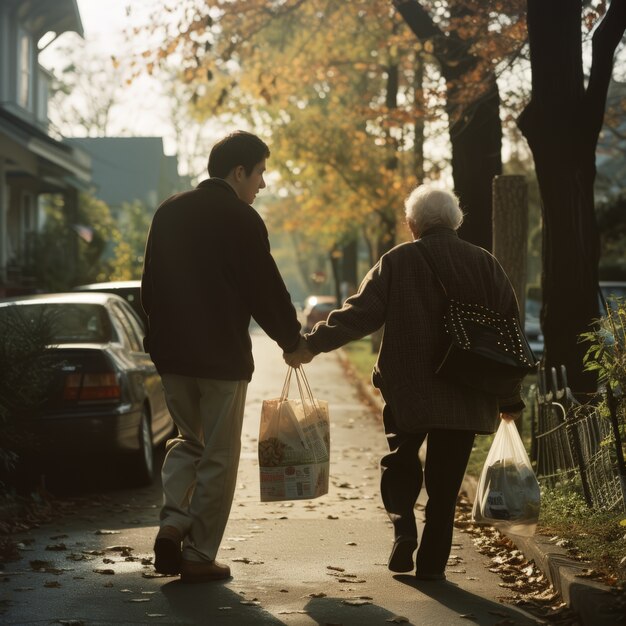
Taking care of an elderly relative can be very stressful, emotionally challenging, and time-consuming. Their needs can change suddenly, often due to medical conditions that require special attention.
As your relative becomes more dependent on you and your family, it can be tough to manage. Here, we’ll go through some essential steps to make life easier for both of you.
One of the biggest challenges for many elderly people is losing their independence. They’ve spent their lives taking care of themselves and possibly you, so this transition can be particularly hard for them.
A good way to ease your mind and give your relative some time alone is by using medical alert systems. These are buzzers or buttons they can carry or have in their home to trigger an emergency response, either linking to you, a nearby caregiver, or an emergency center.
This system can be a lifesaver, allowing your relative to stay safe while you can be assured help is just a button press away.
If your relative needs more attention and can’t be left alone, it might be time to bring in professional help. Being the sole caregiver is exhausting, especially if you have your own family and job to juggle.
There are private professional carers and companies that can assess your relative’s needs and create a tailored plan to help everyone involved. This plan might include daily check-ins from a carer, giving you peace of mind and time for other responsibilities. In more serious cases, full-time care might be necessary, with a professional moving in on a rota system to ensure your relative gets the best care.
Elderly people often struggle with mobility and daily tasks, which can affect their self-esteem. Helping them maintain some independence by using home mobility aids can make a significant difference. Simple adjustments like installing handles on door frames, adding ramps, and providing assistance for getting in and out of bed or chairs can be very beneficial.
Routine is also important for retirees, as it helps them keep track of time, thus avoiding complications with meals, medications, and mental wellbeing. Setting up a joint schedule can help both of you stay organized and ensure your relative knows what to expect each day. This includes planning doctor’s appointments, meal times, and your visits, which can make them feel more secure and mentally active.
As a caregiver, it’s easy to neglect your own well-being. It’s essential to take time for yourself, keep up with hobbies, and spend time with friends to avoid burnout. Remember, if you’re in good shape, you’ll provide better care for your relative.
Sometimes, staying at home isn’t an option. If your relative needs full-time care that you can’t provide, sheltered housing might be the best solution. These facilities offer various options, and you can find reviews and arrange visits to find the right place. In sheltered housing, your relative can find a supportive community and make new friends, while receiving the care they need.
Caring for an elderly relative will always be challenging, but by following these steps, you can ease the burden. Make well-informed decisions focused on improving their quality of life without overwhelming yourself. Once you find a routine and set up the necessary support, you can continue to enjoy a fulfilling relationship with your loved one, no matter the circumstances.



